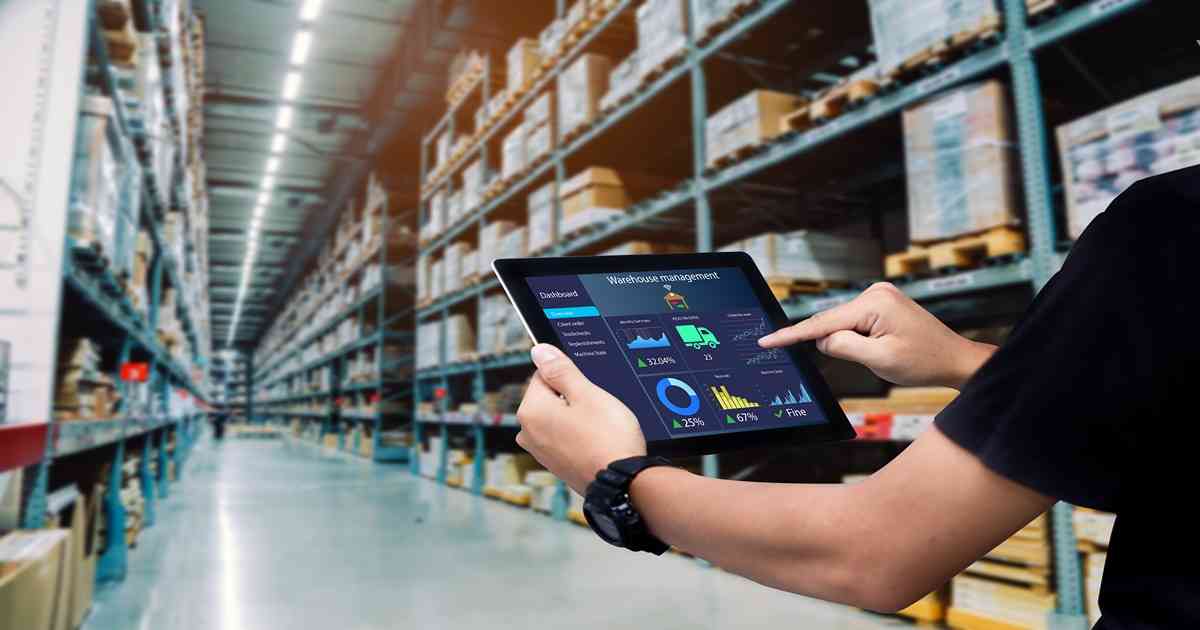
Supply Chain
Article | May 26, 2023
The logistics sector is experiencing a significant technological shift similar to that of all other industries due to the growing need for remote work solutions. Social networking, the Internet of Things (IoT), cloud-based logistics, and other technological advancements are reshaping the logistics industry and moving it in a new direction. Additionally, the supply chain and logistics as a whole are greatly influenced by factors like transportation and digital transformation.
Modern digital technology is fundamentally altering how various sectors function. Increased connectivity amongst the people has also increased the needs of customers, created new purchasing habits, and gave birth to an entirely new industry as a whole, e-commerce.
The Shift Towards the Could Technology
Over the past few years, the transportation and logistics industry has witnessed a shift towards digitization as more and more people have access to the internet and computer for day-to-day work.
From online grocery stores to local delivery apps and even on-demand airport shuttle services, the adoption of cloud technologies has given a viable solution to customers and businesses at a lower cost than before. As a growing number of businesses reevaluate their use of innovative technologies, cloud computing is becoming an increasingly serious and practical choice.
The cloud is of significant use in the world of freight transportation and logistics, as it stores crucial shipping information that can be accessed at any time via transportation management systems from anywhere. The technology is emerging as a game changer for the businesses operating in the logistics industry. Here is a list of benefits cloud technologies offer:
Logistical space planning
Real-time package updates
Leverage artificial intelligence (AI) and machine learning (ML)
Vehicle health monitoring
E-ticketing management
Final Thought
Cloud-based solutions have enormous potential to improve operational and financial efficiency in the transportation and logistics industry. Some facets of cloud-based solutions also have the ability to transform the overall shipping experience altogether. Assessing the merits of this technology, a large number of leading businesses are incorporating it for applications such as fleet-specific planning, shipment optimization, faster delivery, and others. In the coming years, cloud-based solutions are likely to become very popular in the supply chain industry as they keep getting better.
Read More

Transportation
Article | April 26, 2023
Oracle, a leading provider of computer technology, published a paper analyzing how supply chain managers should use change as a catalyst in "inspiring and engaging employees." In the report, Oracle highlights how organizations across the world are going through radical shifts in the way they operate.
Customers need quick, convenient, and customized solutions today. Employees also have higher expectations, looking for companies that are a match for their values, provide flexible working arrangements, and offer cutting-edge tools. Shareholders and investors also want more, which forces businesses to focus on making money in ways that are sustainable and diverse.
See Change as an Opportunity
The companies that are most successful, according to Oracle, are those who see change as just another opportunity to reinvent, and the company lists four ways supply chain leaders might find such an opportunity:
Boost employee engagement
Aim for sustainability and responsibility in management
Be quick to respond to disruptions in the supply chain
Exceed consumer expectations
In the paper, Oracle reports that instead of adapting to the change, organizations must be able to stay on top of challenges and prepare well in advance.
Align with an Employee-Centred Culture
Leaders must be able to attract well-matched talent, with the skills to not just fulfil job roles but also drive innovation. Today, people value a work-life balance where they have time to pursue their non-work interests, spend time with their families, and create a diverse, and inclusive world. According to Oracle, this is a significant consideration, and organizations that meet the demands of this new workforce will have a competitive edge in hiring the top talent.
Looking Forward
The Great Resignation has been a hot topic in HR, but the truth is it affects all aspects of business, and importantly, the supply chain, and in the end, the ability to provide smooth customer experiences. HR, customer experience, and supply chain leaders must synergize to become an employer destination to reckon with in order to succeed.
Read More

Supply Chain
Article | August 17, 2023
The pandemic has had a significant impact on the logistics and shipping sectors, forcing businesses to rethink their supply chain tactics. Fresh COVID- Supply systems around the world are already under threat from 19 outbreaks. China's measures to stop the spread of Omicron by shutting down shipping terminals caused a lockjam of cargo ships. A similar scenario was seen in US and European ports that were congested as a result of a significant increase in cargo.
Additionally, these difficulties have been made worse by the tremendous staff shortage in the US. Although there are more job openings than before, the total strength of the workforce has taken a hit. A report by WNS and Corinium Intelligence reveals that over 60% of shipping and logistics organizations have amped up the automation aspect of their operations by two years. So, what does that mean for the future? In this article, we will talk about the four most promising trends that will define the shipping and logistics industry in 2025.
Live Monitoring Powered by Big Data and the Digital Twin Technologies
Big data is simplifying the ability to be agile, efficient, and cost-effective, and connectivity with other technologies and elements of the infrastructure is driving a real-time view of the supply chain further. Other innovations such as drones and self-driving trucks will contribute to this real-time update and processing of massive amounts of data. In addition, tracking software for freight will provide even greater visibility to customers and enterprises.
Automated Planning Through Collaboration Between Humans and Machines
Artificial intelligence (AI)AI in shipping and logistics has grown exponentially in areas of planning. AI applications are used to alter transportation and route planning. According to Gartner, by 2030, AI augmentation, will surpass other forms of AI application and account for 44% of all AI-powered value. Predictive alerting is a prominent example of augmented intelligence. Smart alerts based on predictive analytics can be used by logistics professionals to carry out a variety of crucial tasks, such as estimating truck arrival times, anticipating equipment maintenance and product damage, and organizing for a spike in demand.
Hyper-local Supply Chains
Enterprise will downsize and bring their supply chains onshore over the course of the next few years, ushering in the next generation of hyper-local logistics. The two forces driving this transition are the need to stay agile and resilient to counter disruption and meet challenging customer demands for same-day delivery. The global same-day delivery market is estimated to reach a value of USD 20.36 billion by the year 2027. This will cultivate a hyper-local service to meet the growing demand.
Sustainability
An emphasis on sustainability will be the highlight of the shipping and logistics industry. Enhanced connectivity will enable enterprises to optimize their human as well as robotic resources.
Future Forward
The shipping and logistics industry has been forced to accelerate their digital adoption and increase their resilience due to the uncertainty in the past couple of years. Establishing real-time visibility, leveraging human-machine collaboration, adopting hyper-local logistics, and improving sustainability are all ways that businesses are preparing for the future.
Read More

Supply Chain
Article | May 22, 2023
Data volume in supply chains is usually enormous. Analytics applied to the supply chain help make sense of the pile of information by identifying patterns and drawing conclusions.
Contents
1 Importance of B2B Supply Chain Analytics
2 Obstacles in Supply Chain Analytics Integration
2.1 Barriers in Collecting and Processing Data
2.2 Insufficient Technical Skills
2.3 Issues in Managing and Integrating Data
2.4 Inadequate Analytics and Insights Generation
3 Addressing Supply Chain Analytics Complexities for Better Decision-Making
3.1 Leveraging External Expertise
3.2 Enhancing Collaboration and Communication
3.3 Improving Data Quality and Governance
3.4 Developing Analytics Capabilities
4 Power of Successful Supply Chain Analytics Integration in Transforming Businesses
5 Conclusion
1 Importance of B2B Supply Chain Analytics
Supply chain analytics has become a pillar of contemporary business strategy, enabling organizations to leverage data insights and enhance vital supply chain processes. By utilizing real-time data analytics, businesses can streamline their supply chain operations, boost productivity, and increase customer satisfaction. With unparalleled visibility into key performance indicators, B2B supply chain analytics provide the opportunity to identify inefficiencies, reduce costs, and react swiftly to ever-changing market dynamics, streamlining the process for supply chain business analysts who manage supply data.
Leveraging the power of supply chain analytics tools is important for the success of modern businesses in the age of data-driven decision making. With the ability to optimize inventory levels, manage lead times, and reduce transportation costs, supply chain data analytics provides a competitive advantage that can increase the efficiency, productivity, and profitability of businesses of all sizes and in all industries.
2 Obstacles in Supply Chain Analytics Integration
Supply chain analytics integration has become increasingly critical for companies seeking to optimize their supply chain operations. However, several obstacles hindering successful implementation often complicate the integration process; hence, understanding and knowing them in advance is vital for smooth operations.
2.1 Barriers in Collecting and Processing Data
Effective data collection and processing are critical in generating accurate insights to drive supply chain analytics decision-making. However, it comes with challenges; the most critical obstacle is data silos, where data is stored in isolated systems or departments, leading to difficulties in accessing and integrating it. It gets more complex when different departments or partners use varied data formats or standards. Additionally, cleaning and processing data is also challenging, as it involves identifying and eliminating duplicates, inconsistencies, and errors that can negatively impact analytics accuracy.
2.2 Insufficient Technical Skills
Successful supply chain analytics integration depends heavily on technical skills and knowledge. Insufficient technical talent and expertise are significant barriers to successful integration. The integration process requires specialized technical expertise and the supply of skilled professionals with expertise in ETL, statistical analysis, knowledge of ML, IoT, SQL, and more in managing supply chain analytics Talent lacking technical skills cannot accurately interpret data, leading to ineffective
decision-making. Preliminary data analysis, processing, and visualization due to a lack of technical expertise results in suboptimal decision-making, which can be costly for businesses.
2.3 Issues in Managing and Integrating Data
Data integration combines data from various sources and formats to create a unified view. However, businesses face data governance, quality, and standardization issues, resulting in incomplete or inconsistent data. Lack of accurate information reduces the efficiency of supply chain analytics and impacts decision-making. Additionally, data management is complex, and business face difficulties creating effective data management processes, resulting in problems related to storing, retrieving, and updating data.
2.4 Inadequate Analytics and Insights Generation
Obtaining valuable insights from enormous data collected during the supply chain process requires advanced analytics tools and technologies. Many businesses, however, continue to rely on traditional reporting methods, which limit the range and complexity of insights generated. The lack of expertise in data analysis and visualization can lead to poor interpretation and use of data, resulting in suboptimal decision-making. In addition, businesses experience difficulty identifying relevant data sources or may struggle to establish the necessary data governance frameworks to ensure data quality and accuracy.
3 Addressing Supply Chain Analytics Complexities for Better Decision-Making
Supply chain analytics can provide valuable insights, but the complexities involved in analyzing and interpreting data can be a significant hurdle. Learning the strategies for addressing these complexities to improve decision-making in supply chain management has become essential.
3.1 Leveraging External Expertise
Leveraging external expertise can be a powerful strategy for addressing supply chain analytics complexities related to collecting and processing supply chain data during integration. External experts bring specialized skills, experience, and knowledge that may not be available in-house, enabling organizations to overcome talent shortages and expand their capabilities. Furthermore, consultants, data scientists, or technology providers provide an objective viewpoint on the organization's data and processes, identifying areas for improvement and optimizing performance. By collaborating with external experts, organizations can access the latest tools, technologies, and best practices, ensuring that their supply chain analytics are up-to-date and relevant.
3.2 Enhancing Collaboration and Communication
Enhancing collaboration and communication can effectively address the challenge of insufficient technical skills in thriving supply chain analytics integration. By promoting cooperation and cross-functional communication, organizations can leverage the skills and expertise of team members from various departments to fill gaps in technical knowledge. This approach can also help to break down data silos and improve data sharing and integration. In addition, collaboration and communication can facilitate knowledge transfer, enabling team members to learn from one another and develop a more comprehensive understanding of the supply chain analytics process. Ultimately, this can lead to improved decision-making, as a more skilled and knowledgeable team can generate more accurate and insightful analytics.
3.3 Improving Data Quality and Governance
Businesses ensure accuracy, completion, and up-to-date data by establishing standardized processes and protocols for collecting, storing, and analyzing data. Data quality checks, including data cleansing and normalization, can help eliminate errors, redundancies, and inconsistencies that can negatively impact the accuracy and usefulness of analytics. In addition, effective data governance, including establishing data ownership, security, and privacy policies, helps ensure that data is managed and shared appropriately across the organization. As a result, it reduces the risk of data breaches, compliance violations, and other data-related issues, ensuring that organizations have access to reliable data for better decision-making.
3.4 Developing Analytics Capabilities
Developing capabilities significantly help organizations overcome inadequate analytics and insights generation challenges in analytics integration. Investing in advanced analytics tools and platforms like technical skills, data infrastructure, and advanced supply chain analytics techniques help businesses generate real-time, accurate, and actionable insights from collected data. Developing analytics capabilities requires creating a culture that values data and analytics, establishing robust data governance frameworks, upskilling the workforce and creating cross-functional teams collaborating on data-related projects. In addition, it helps businesses gain a competitive advantage.
4 Power of Successful Supply Chain Analytics Integration in Transforming Businesses
Effective supply chain analytics integration is revolutionizing business operations. Real-time and supply chain predictive analytics have helped businesses gain unmatched transparency in their supply chains, enhance critical processes, improve operational efficiency and customer satisfaction, and experience revenue growth and profitability. The ability to identify inefficiencies and supply chain optimization opportunities enables businesses to effectively allocate resources and reduce expenses. In addition, successful supply chain analytics integration enables businesses to respond quickly to changing market dynamics, optimize inventory management, and strengthen the resilience of their supply chains.
Businesses are leveraging the power of big data analytics to disrupt and transform supply chain at all levels. The concept of data, which was once a fundamental component of digital supply chain transformation, is now revolutionary. Therefore, it is essential to achieve advancements in supply chain analytics integration and management.
5 Conclusion
With technological and data analytics advancements, businesses can utilize real-time data insights to make data-driven decisions, optimize supply chain processes, and improve customer experiences. Integration of supply chain analytics is crucial for supply chain businesses of all sizes. Utilizing supply chain analytics software can further streamline integration as well as enhance data analytics and supply chain management.
Read More